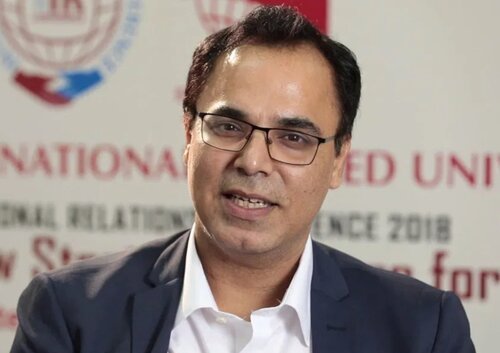Life Science Policy in India
Course Description
Life science policy covers a vast arrays of laws, policies and guidelines that govern research, and use of life science in India. If you are interested in understanding how India approaches life science policy - be it funding research, governing emerging technologies or responding to pandemics - this course is for you. The course cannot cover all life science policies that exist in India, and instead will equip you with tools to assess policies in your area of interest.
The course covers key determinants of public policy and how they impact the research and development of life science policy in India. These determinants include economic reasoning, role of government, impact of narratives, incorporating ethics in public policy, amongst others.
Entry Requirements
An undergraduate degree in any discipline is mandatory.
Those interested must fill in the application form, which will be reviewed by Takshashila’s Academic Committee.
Admission Process
The Academic Committee will review the application form and Statement of Purpose. Please take some time to reflect on your purpose of taking up this course and how you think you will be able to use the learning in future. The Committee gives a significant weightage to this response in their decision while reviewing the application. Hence you are requested to fill this with utmost sincerity and diligence
Fees
Standard: The full programme fee is Rs 5000 (plus 18% GST).
Limited student scholarships available. Programme fee after scholarship is Rs 3500 (plus 18% GST).
Fees, once paid, are non-refundable.
Course Structure
LSP1: Introduction to Life Science Public Policy
Appreciate the complexity of the public policy making
Learn stakeholder mapping
Understand the scope and limits of life science public policy
LSP2: Introduction to Economic Reasoning
Understand the basic assumptions of Economics
Study how economic reasoning shapes public policy
LSP3: Introduction to Decision-making in Government
Appreciate the complexity of decision-making in government
Understand how policy agenda is shaped
Understand a few models of governmental decision-making
LSP4: Government Intervention
Understand when government intervention is necessary
Understand kinds of market failures and responses to them
How government intervenes in the life science policy space
LSP5: Narratives
Importance of messaging in public policy
Elevator Pitch: Simplicity and Coherence in messaging
How narratives influence public policy
LSP6: Introduction to Ethics and Policy
Understand how policy incorporates ethical perspectives
Study frameworks for approaching ethical conundrums in life sciences
LSP7: Engaging with Policy and Policymakers
Learn how to analyse public policy
Learn how to communicate with policymakers
LSP8: Recommendations for Promoting Life Sciences
Understand how life sciences in India is funded
Debate monetary and non-monetary ways to promote life sciences
Frequently Asked Questions
+ What are the entry requirements?
An undergraduate degree in any discipline.
+ How long is the ECC?
The ECC will be a 4 week programme
+ What is the teaching methodology?
The programme is largely delivered online through live webinars and you be expected to work on shared worksheets.
+ How many hours of work will a student be required to put in per week?
There will be two live online webinars every week, each lasting 90 minutes. Students will need to spend approximately 2-3 hours per week on readings and preparations. Therefore, the total amount of time that a student will be expected to spend in a week would be approximately six hours.
+ What are the fees for the ECC? Is there any financial assistance provided?
The programme fee for the ECC is INR 6,000 (exclusive of taxes). For early birds, students and Takshashila alumni, the programme fee is INR 5,000 (exclusive of taxes). A valid proof will have to be provided in this case. For example: Student ID, Semester marksheet etc.
+ Is there any application fee?
No application fee is required.
+ Which university will award the ECC degree?
The ECC is an independent certificate programme of the Takshashila Institution and is not affiliated to any university.
+ What are the application deadlines?
Admissions to the course are on a rolling basis. The last day for applications is Tues, 10th Sept 2024.
+ When will the programme begin?
Classes for the ECC will commence on Sat, 14 Sept 2024.
+ How do I apply to the programme?
Applicants can apply by completing the form after clicking the 'Apply Now' on this page.
+ I have another question!
Email your queries at scc@takshashila.org.in
Key Dates:
Application deadline
Tues, 10th Sept 2024
Programme begins
Sat, 14th Sept 2024
Programme ends
Sat, 05th Oct 2024
Featured Faculty
Shambhavi Naik
Shambhavi Naik is the Head of Research at Takshashila and is the chairperson of the Advanced Biology programme. Her research covers India’s policies in areas of emerging technologies, with a focus on healthcare and higher education.
Anupam Manur
Anupam Manur is an Assistant Professor at the Takshashila Institution. His research interests lie at the intersection of economics, technology, and public policy. He is currently working on platform economics, India’s ongoing jobs crisis, digital payments, and the New World Order.
Suman Joshi
Suman Joshi is Programme Manager for the Graduate Certificate in Public Policy (Advanced Public Policy) programme at Takshashila. She teaches public policy analysis for Takshashila’s Graduate Certificate in Public Policy programme.





